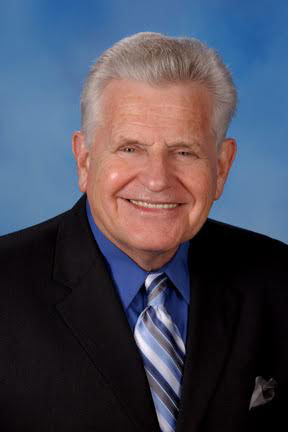Mood of Hotel Investors and Operators is Euphoric | By David M. Brudney, ISHC
Although hotel development in China and India dominated the dialogue, speaker after speaker told the record attendance of 2,500 at The Americas Lodging Investment Summit (ALIS) in Los Angeles, that both the U.S. and global economy were good and all agreed that this was a very good time to be in the lodging business. 
Can you blame them? Buyers of properties priced $10 million plus paid $204,000 a room in 2006 compared to $165,000 a room in 2005. Smith Travel Research reported a 7.0% growth in average rates, 7.4% growth in RevPAR, aggressive pricing and higher profits.
The luxury market sector received the best reviews of all with the highest demand growth (4.9%) and average daily rate growth (8.9%) for twelve months ending November 2006, according to Smith Travel Research.
How long will these “good times” last? Most agreed through 2008, barring any repeat of 9/11. Using a baseball metaphor, speakers were asked, “What inning are we in”? The consensus appeared to be the fourth inning for the overall industry, but several industry icons and leaders thought it might be only “the second inning” for the luxury sector.
Bill Gates and his partner Saudi Prince Alwaleed bin Talal thought the luxury sector future looked healthy, too. They just paid $3.37 billion to buy Four Seasons Hotels.
J.W. “Bill” Marriott, Jr., Chairman and CEO, Marriott International, Inc., thinks the U.S. and global economy are “doing well” and “should last for awhile.” Full employment is a good sign. “(Control over) oil is the key,” Marriott said. “It keeps inflation down.”
Marriott told a standing-room only ballroom that the U.S. is losing customers to other destinations because “we make it too hard to get here” due to lengthy visa and unfriendly entry processes. He cited figures indicating the U.S. welcomed 26 million international visitors in 2000 and only 21 million in 2005. He called for the U.S. Government to spend more money to “fix the visa problem”, making the process more seamless for those - - frustrated now by the costs and delays - - who want to visit the U.S.
Jean-Claude Baumgarten, president, World Travel & Tourism Council, warned the U.S. travel and tourism industry that not enough money is being spent promoting our destination. Baumgarten said U.S. share is at an all time low: 35 percent drop in inbound visitors since 1992, representing a $286 billion loss in revenue, jobs and taxes. He recommended a much larger promotion budget and new biometric technology for seamless safe travel. He praised the work being done by industry today in “restoring America’s travel brand.”
Other notes and observations from ALIS 2007:
Issues, areas of focus, key messages delivered. I can’t remember an ALIS conference where so many industry leaders used the expression, “enhancing the guest experience” and the importance of “delivering on the promise.” Speaker after speaker gave testimony on their commitment to “listening to our guests,” and that more dollars are being earmarked for customer research and customer relationships.
Attendees heard a lot of “we’re positioning the (our) brand to drive development” throughout the conference.
Andrew Cosslett, CEO, InterContinental Hotels Group PLC spoke passionately when he challenged the industry to make a new and real commitment to social consciousness and responsibility. Others gave real testimony on new environmental-designed products.
Bill Marriott shared his strong opinions on immigration laws and their impact on hotel jobs: “someone employs 13 million illegal immigrants in the U.S. If we pass laws to deport them, you'll hear a huge sucking sound when they leave. Where can we find the people to replace them? (If we can’t) big time inflation will be the result.”
Paul Brown, President, Expedia, Inc. Partner Services Group, voiced concern over possible airline consolidation and its impact on U.S. hotels. “Fares will increase,” said Brown, “and the more money travelers spend to get there (destinations), the less they’ll have to spend on hotels.”
Barry S. Sternlicht, Chairman & CEO, Starwood Capital Group, said he was troubled by increased airfares and the negative impact on business travel. On the development side he pointed out “there’s lots of product announcements and then delays after they realize that due to construction costs, the numbers don’t work.” When asked about where he saw the most opportunity, Sternlicht replied, “if I were 25 years old, I’d move to China or India and make my fortune.”
Charles A. Ledsinger, Jr., Vice Chairman & CEO, Choice Hotels International, said that the franchisee is Choice’s number one customer. Resource allocation is critical. “Are we spending the money wisely? What is the cost of delivering business? We want to keep our owners happy,” Ledsinger said.
Matthew J. Hart, President and COO, Hilton Hotels, said that time-share and private residence was a good business for Hilton to be in. “(It’s) a way for Hilton to get more management contracts”, Hart said.
On the lighter side, visionary Ken Dychtwald, President and CEO, Age Wave, entertained the attendees with his message that the 21st Century will be ruled by the “new” old, that it’s time to “retire retirement” and that we have the potential to live to the age of 120 to 140. “Age 60 is no longer old,” Dychtwald told the audience. Living longer, he said, “will allow us to reinvent ourselves.” He predicted that people aged 70 and 80 will be starting new careers, returning to school, and pursuing long-suppressed interests. “We’re looking at an incredible next two decades”, Dychtwald said.
Kudos, once again, to ALIS Chairman Jim Burba and his great Burba Hotel Network team for putting on an excellent conference.
David M. Brudney, ISHC, Principal
Phone: 760-476-0830
Email: davidbrudney@me.com
David Brudney & Associates
www.DavidBrudney.com
2938A Luciernaga Street
USA - Carlsbad, CA 92009
Phone: 760-994-9266
Email: david@davidbrudney.com
OBITUARY: Death of THE Salesman
Remembering Peter A. Smith | By David Brudney
Are Hotels Coveting only Half of the Millennial Market? Part Two | By David M. Brudney
